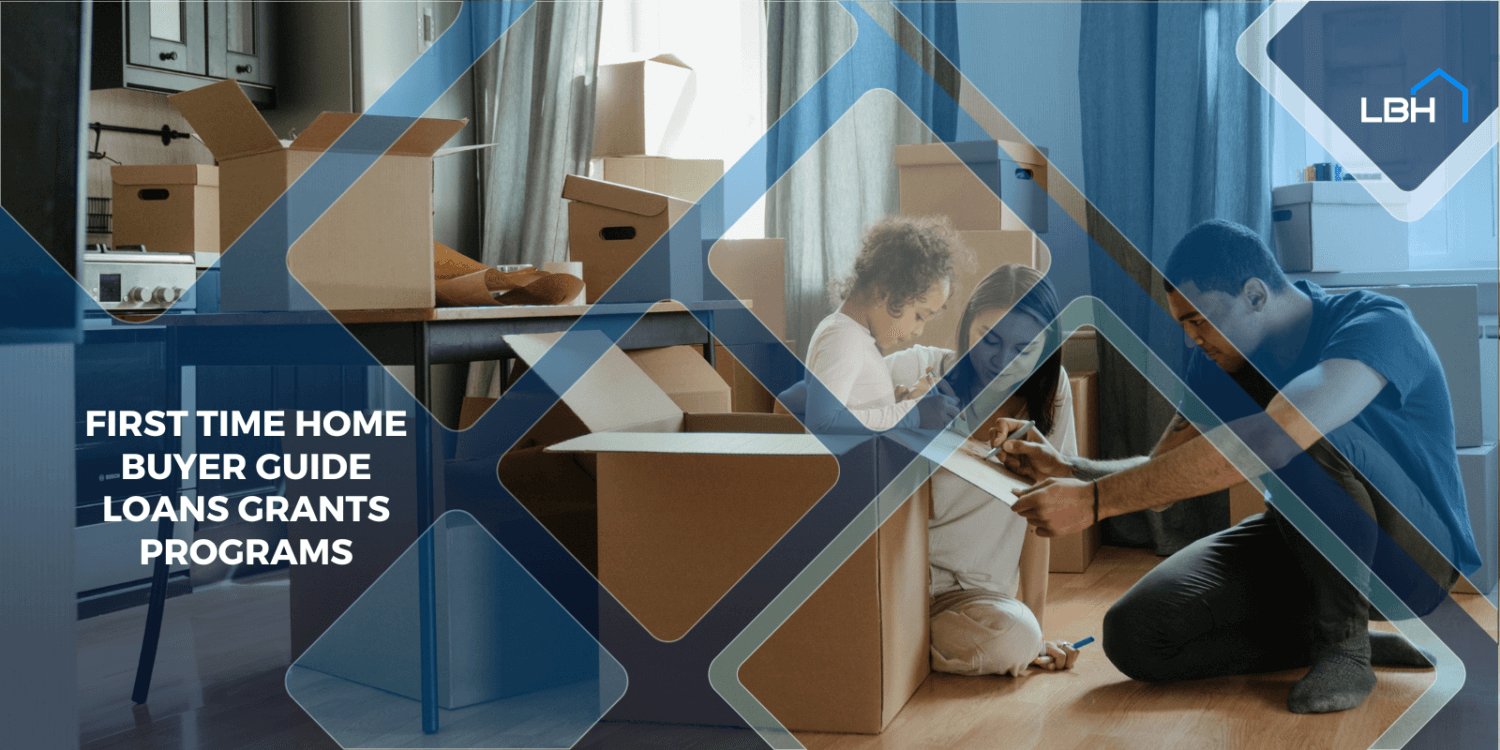Becoming a homeowner is a monumental step in life. But it is a significant step, especially for those navigating the real estate market for the first time. Fortunately, many programs, loans, and grants are available to help first-time home buyers.
This guide aims to outline the essential details of these resources. These include eligibility requirements and application processes. It aims to help first-time home buyers make their homeownership dreams a reality.
Different Types of First-time Home Buyer Loans and Grants
These programs come in various forms and cater to different needs. The following are some of the more common ones.

Government-backed Loans
Government-backed loans are arguably one of the most accessible options for first-time home buyers. The federal government insures these loans. They include FHA loans, USDA loans, and VA loans.
Government-backed loans also come with certain requirements and restrictions. Buyers need to understand what each loan involves before making a decision.
FHA Loans
The Federal Housing Administration backs the FHA loans. They are particularly popular among first-time home buyers due to their low down payment requirements.
These loans can start with a down payment as low as 3.5% of the purchase price. This is a great deal compared to conventional loans that might require a down payment as high as 20%.
However, FHA loans come with Mortgage Insurance Premiums (MIP). This insurance serves as a safety net for lenders, protecting them if the borrower defaults.
It is also essential to note that FHA loans have maximum loan limits, which can vary by county. These limits are set to reflect the average cost of housing within the area, ensuring the program is only accessible to those it’s designed to serve.
As such, potential buyers should research the specific limits in their chosen county before proceeding with this type of loan.
VA Loans
If you’re a veteran, an active-duty service member, or a surviving spouse, the VA loan could be your golden ticket to homeownership.
These are provided by private lenders such as mortgage companies and banks, but the Department of Veterans Affairs insures them.
One of the best perks of VA loans is they do not require a down payment. In addition, they do not require mortgage insurance premiums, unlike FHA loans. The monthly payment premiums will only include the loan amount, accrued interest, and other standard charges.
However, VA loans have maximum loan limits that vary by county, similar to FHA loans. These limits are designed to reflect the average housing costs within the area. This ensures the program remains accessible to its intended beneficiaries. The limits also help reduce the risk transferred to the federal government from the lender.
Potential buyers looking to secure a VA loan should research the specific limits in their desired county. This will help them determine if their preferred property falls within these parameters.
USDA Loans
The United States Department of Agriculture sponsors the USDA loans. They are ideal for low-income first-time buyers looking to purchase homes in rural areas.
One of the most attractive features of a USDA loan is the ability to finance a home purchase with zero down payment. They also carry no mortgage insurance premiums, which can significantly reduce the monthly cost for the borrower.
However, as with other government-backed loans, USDA loans come with their own set of restrictions. Income and purchase price limits are in place to ensure the program serves its intended target.
Down Payment Assistance Grants
Down payment assistance grants are financial aid programs to assist first-time home buyers who cannot afford the upfront costs of purchasing a home. Various state and local governments, non-profit organizations, and certain financial institutions are usually the providers of these grants.
State and Local Government Grants
State and local government grants offer a variety of down payment assistance programs. These can take the form of grants, loans, or tax credits. Each locality has unique requirements and benefits associated with these programs.
Some may offer outright grants that never need to be repaid. These are usually a percentage of the down payment or a fixed sum. However, you should be cautious. Some so-called grants can result in a second lien on your property. Always read the terms associated with the agreement before committing.
Others offer low-interest loans or tax credits that reduce the overall cost of the home. Home buyers should research the specific conditions and benefits of these programs in their desired location. This will enable them to benefit from these initiatives fully.
Non-profit Organization Grants
Non-profit organizations also provide down payment assistance programs. Each program these organizations offer comes with its unique criteria and benefits.
For instance, an organization might offer forgivable loans. This kind of loan doesn’t have to be repaid if the buyer stays in the home for a specified time, often after five years. Others may provide low-interest loans, deferred-payment loans, and matched savings programs.
Other First-time Home Buyer Programs
In addition to state and local government grants and non-profit organization programs, other initiatives can assist first-time home buyers. These include the following.
Homebuyer Education Programs
These programs offer crucial information and resources to help first-time homebuyers navigate the complexities of the home-buying process. Some of these programs also provide financial assistance through down payment grants, thus further easing the financial burden of purchasing a house.

Mortgage Credit Certificates (MCCs)
MCCs can reduce the federal income tax you owe, making homeownership more affordable. The amount of the credit you receive is typically dependent on the purchase price of the home and the mortgage interest rate. Discussing this option with a financial advisor or loan officer is essential.
Employer-assisted Home Buying Programs
Remember to check in with your employer if you’re considering buying a home. Some employers offer financial perks to help you with this. The benefits vary widely, from low-interest loans and shared equity arrangements to forgivable loans.
It is also crucial to remember that while these programs can provide significant assistance, they are only part of the equation. Ultimately, successful homeownership involves careful financial planning, prudent saving, and responsible borrowing.
Eligibility Requirements for New Homebuyers
Each first-time homebuyer program has its rules, and eligibility is usually based on a mix of critical factors. To know if you’re qualified, you will have to dig into the restrictions and criteria of each program. Common things they look for include your income, your credit score, and your debt-to-income ratio.
Income Limits
Every program has income limits set, which may vary depending on the program and geographical location. These limits are put in place to ensure that assistance is given to those who need it the most. It’s crucial to verify these income limits based on your specific circumstances.
Credit Score Requirements
Each program also has credit score requirements. This score reflects your creditworthiness based on your past and present financial behavior. The required credit score can differ by program, so knowing where you stand and what each program requires is essential.
Debt-to-income Ratio Requirements
The debt-to-income ratio, or DTI, is like a gauge of how well you handle debt. Different programs have their own rules about what this number should be. In general, a lower DTI is a good sign. It means you have enough income to pay your debt obligations.

How to Apply for First-time Home Buyer Programs
Applying for a first-time home buyer program can be intimidating, but it doesn’t have to be. With proper guidance, you can easily navigate the application process. The following steps will help you in this endeavor.
Contact the HUD Office or Your Local Housing Authority
The first step is to contact your local housing authority. You can also reach out to the Department of Housing and Urban Development. These agencies are your go-to source for everything you need to know about first-time home buyer programs in your area. They’ll guide you through the eligibility requirements and how to get started with the application.
Search Online for First-time Home Buyer Programs
You can also search online for first-time home buyer programs. There are several websites and online platforms that list these programs. These websites provide comprehensive details about the programs.
Some websites even allow you to filter the programs based on your needs and circumstances. This makes it easier to find the best option.
Understand the Requirements
Before you dive into the application, knowing if you’re a good fit for the program you’re eyeing is critical. Make sure you check all the boxes on the eligibility list. Doing so will increase your chances of approval.
Prepare and Submit Your Application
Gather all the necessary documentation required for the application. This may include proof of income, credit reports, and other financial documents. Fill out the application forms accurately and submit them. Patience is important after this step, as the review process may take some time.
FAQ
What Is a First-time Home Buyer?
A first-time home buyer, according to the Department of Housing and Urban Development (HUD), is a person who has met any of the following conditions:
· An individual who has not owned a principal residence during the three years before purchasing a property
· A person who has only owned a property not affixed to a permanent foundation or one not compliant with state, local, or model building codes
· A single parent who only owned a home while married
· A displaced homemaker who has only owned a home with a spouse
· An individual who has previously owned a property but has not been a homeowner for at least three years
· The three-year rule also applies to a spouse – if either meets this condition, they are considered first-time buyers.
However, the specifics can vary, and some first-time homeownership programs may have their particular definitions or exceptions. Therefore, reading each program’s terms and conditions is essential.
Why Are There First-time Home Buyer Programs?
Buying a home comes with its set of financial hurdles. There is the down payment, which is often a large sum. Moreover, closing costs surprise first-time buyers.
First-time home buyer programs provide the much-needed assistance. They make the purchase feasible and less stressful. These programs often offer grants, loans, tax credits, or other forms of aid. Some programs can give financial incentives. These include forgivable second mortgages and grants for repairs and renovations.
The federal, state, and local governments are usually the sponsors. Some private organizations and lenders also provide first-time home buyer programs. All these bodies offer programs in recognition of the broader societal benefits of enabling people to own homes. This includes community stability and economic growth.
Key Takeaways
First-time home buyer programs can significantly ease the financial burden of purchasing a home. They can expedite your journey to homeownership. They can also lead to substantial savings on your monthly mortgage payments.
These programs also come with their challenges. Eligibility requirements often involve income, credit score, and debt-to-income ratios. These must be met and can sometimes be stringent. In addition, the process of applying can be time-consuming. It’s important to research and understand the specifics of any first-time home buyer program you are interested in. This can be the difference between successfully becoming a homeowner and having your dreams dashed.













